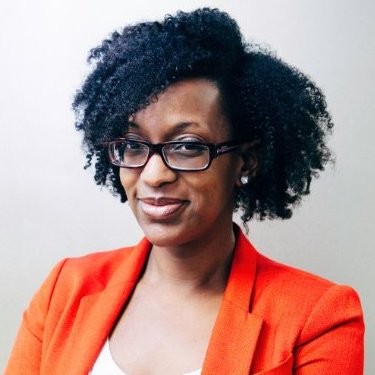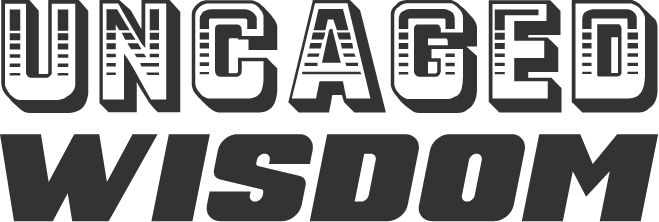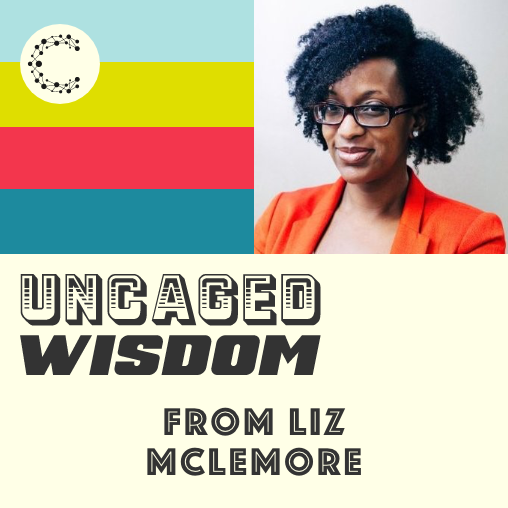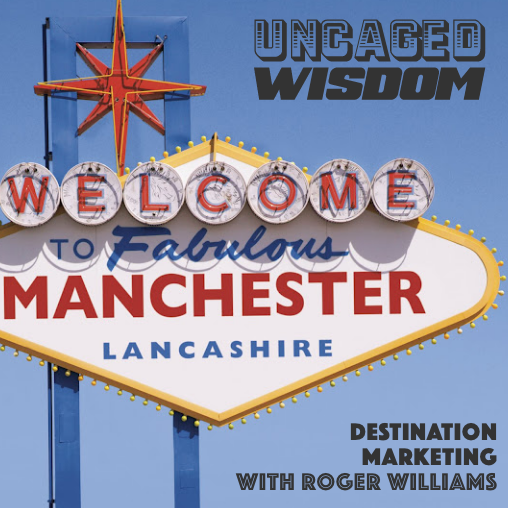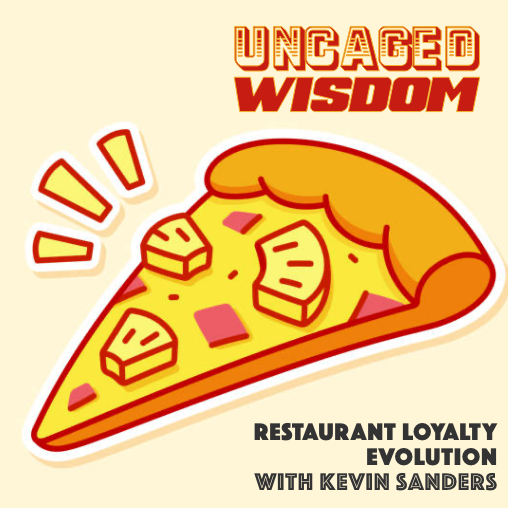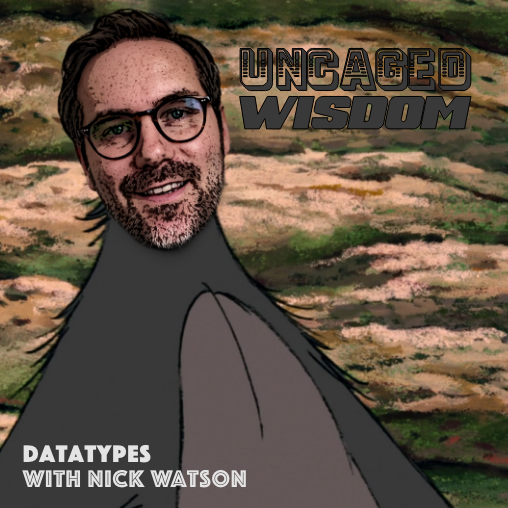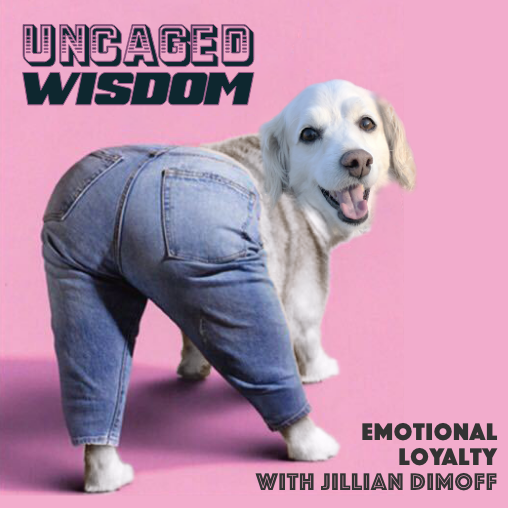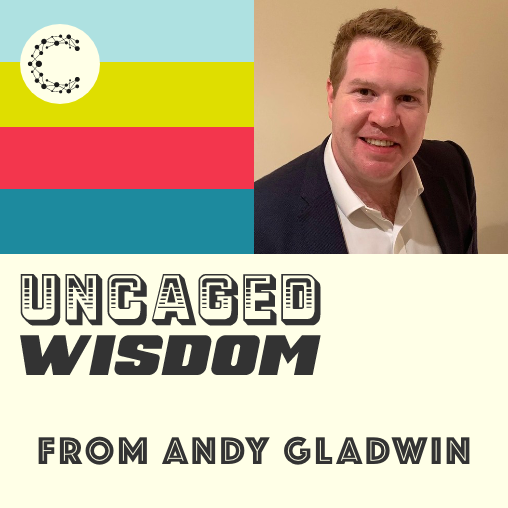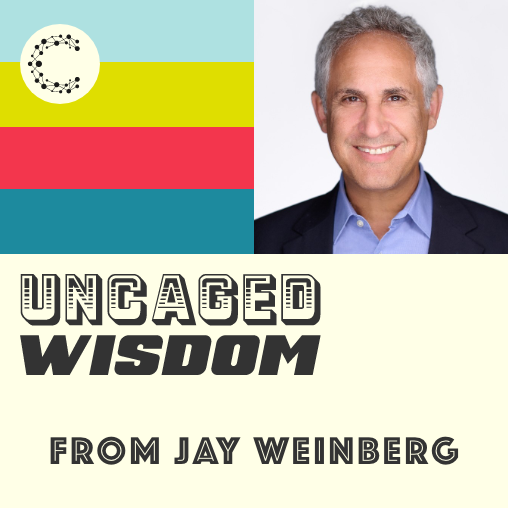Cheetah Digital's Approach to Business Transformation w/ Liz McLemore
- 0.5
- 1
- 1.25
- 1.5
- 1.75
- 2
Liz McLemore: So Julie, what you're saying is I now need a successful album to come out of this.
Julian Bracey-Davis: Well, I'm certainly saying it would help. I mean, if you're going to inaudible
Speaker 3: Uncaged Wisdom, Cheetah Digital's podcast for modern marketing.
Julian Bracey-Davis: Hello again. And welcome back to another episode of Uncaged Wisdom, Cheetah Digital's podcast for modern marketing practitioners. I'm Julian Bracey- Davis. Business transformation has always been a hot topic, but due to the events of the past year, many organizations have understood that the rubber really needs to hit the road. The idea of turning your marketing program and team upside down, though, can seem ominous. And COVID-19 didn't exactly give brands a chance to press pause. But just because something is hard, doesn't mean it's impossible. And in this episode of Uncaged Wisdom, we'll hear from a master of business organization. Liz McLemore, director of service offerings at Cheetah Digital, will share with us tips on how to try new things, and deliver better results by embracing change. Let's hear from Liz. Well thank you for joining us, Liz.
Liz McLemore: My pleasure. I'm excited.
Kayla: Liz, what is a fact about you that nobody would guess?
Liz McLemore: Oh, I know American Sign Language. So I went to a local community college after I graduated from undergrad. I was like," I want to stay in school. I want to learn new things." And so I was in a two year program. If you have any questions about ASL, deaf culture, the whole thing, I'm here for you.
Julian Bracey-Davis: How did you find learning it?
Liz McLemore: The great thing about it is if you learn the alphabet, worst case scenario, you could spell things out to someone. And you can learn the alphabet in probably 20 or 30 minutes. So that unlike like a lot of other languages, it's really easy to pick up. And then the rest of it is just vocabulary. And there are specific things in ASL when you're talking about time and you're really building visually the story. So I'm putting it in space so you can see it. So if I'm telling a story and I'm like," Julian's here. And Kayla's here." The audience is supposed to remember that. So then at a certain point I'm pointing and then we're having a dialogue, and I don't have to keep saying Julie and Kayla, Julie and Kayla, because we're in this visual place.
Julian Bracey-Davis: You're building an image in people's minds.
Liz McLemore: Exactly. And that's part of being a storyteller, I think from a marketing perspective. Like that feeds in really well, because I love characters, and story development, and the details of the story, and figuring out what is important for me to communicate. So using my hands and ASL was really a natural kind of fit because you're always telling a story about something.
Julian Bracey-Davis: We've titled this Cheetah Digital's Approach to Business Transformation, and that's very broad and we're going to narrow it down and we're going to use your expertise and skills into what actually that means. Before we get into that, could you give us a little sort of a potted history of yourself?
Liz McLemore: I started... I walked into the Cheetah office in El Segundo on my grandmother's birthday in 2008. And I'm not ashamed to admit, I had no idea what the company did. Not a clue. Like I knew that it was marketing and technology, but I didn't know specifically back then it was focused on email. And what I found was a team unlike any other. Like smart people who worked really hard and actually liked each other, and a team setting where, if you had a problem, someone would help you, and they would follow up with you after that to make sure that your problem was addressed. And I think that kind of created a place where we were able to grow. So I was here initially for 12 years and I've been back now for six months in a completely different role. I was in strategy before and now I'm in services offerings, which is a great place for me to be in, because I started in services. And so I remember distinctly what it was like for them to say," You are the account manager." All of the success and all of the failures belong to you. And so I was like," Yo, I want to win. I want to succeed. I want the team to succeed. I want the clients to succeed. I want everyone to win." And when you come at it in that way, it really changes the way you approach work. And so now being on the other side of helping develop our services packages, I understand the importance and how much of a difference it makes in our clients to have that services team helping them along the way.
Kayla: One of the things that I'd like to understand Liz, in just kind of your journey over the past years with Cheetah and without Cheetah and with all the clients, what is a common theme that you've kind of noticed is happening through every business?
Liz McLemore: I would say there's two things. So I would say that there are client teams that need a lot of handholding and strategic advice. They have the charge to run their digital marketing programs, but they don't know exactly what to do. And so they'll come to us, once they trust us, and ask us for that advice. And that happens generally across the board. The second thing I have seen is people who are afraid to take risks. When we tell them," This is new technology, this is a new approach, this is a new message or campaign or new..." Whatever. There's a lot of just hesitance. Because we don't want to break something that's working. Because email generates a lot of revenue for companies. And so you can slide into the if it ain't broke, don't fix it. But then you can also be in a point where you're not growing. So getting clients to the point where they trust us, where we can advise them, and also help introduce those really calculated, mitigated risks. Those are the things that I've seen consistently.
Julian Bracey-Davis: With business transformation, what does that as a term, but what does that actually mean in our world of marketing and digital marketing?
Liz McLemore: So what's great, and us having a discussion about business transformation, and the term, and what does it mean, and is there a better word for it, I think we have to approach it from a proactive and a reactive stance. So what we've seen in the past year is the reactive, right? Something happens that affects everyone personally and professionally, and businesses have to respond to that. So for our clients in particular, especially the ones who are retailers, you've gone from a place where you used to have people coming into your establishment, you had people online, and you were able to work both of those channels. But then the in- store experience goes away completely. And moving fully online and enhancing that experience is something that happened really quickly. It wasn't a gradual thing. It wasn't like it only impacted one country or the western half of this place or the southern half. It was just this overall shift. And so I think what companies need to do now, as things settle down, is really ask themselves the same thing they would when they're building their brand. How do we want people to perceive us? Who do we want to be? And that seems to be great when they're establishing their brand, but when it comes to operations, that falls by the wayside a little bit. And it has to happen. That has to happen at the top and trickle down. Who are we? Who am I as a teammate? Who are we as a team, whether it's operations or services or marketing? But it's so important that each of our teams has a positioning statement. Companies generally have a mission and vision statement, but what I'm asking for our teams to do is to have their own positioning statement. And I think every single company needs that. Everyone needs their marching orders, because even though they're working on their own tasks, they all need to work together. It all has to come together and fit at a certain point. So I really believe that what companies need to do is be proactive about that. And it needs to come from the top down.
Julian Bracey-Davis: With some of the brands you've worked with, they all come from a position. The reason why they exist is because they had an idea which is helping to solve a problem or to deliver a service to people, so their customers. Have you seen, have they had to adopt a new one? Or re- imagine their positioning? Especially again, when it comes to sort of the full digital. Or have they just needed to try and rejig their thinking to saying," Well, how does digital and the work that we do with email or collecting information, data consensually, how does that play into our north staff statement?"
Liz McLemore: I look at it like a football team, right? Football's my favorite sport. So everything for me always comes back to football. I look at it like that. I mean, we've just gone through the draft, so I think it's top of mind. But football teams have a goal. They want to win the Super Bowl. What happens along the way though, is that there could be any number of shifts, right? You get a new coach. The new coach brings a new coaching staff, new program. You might have new players who come on the team, you might have players who shift positions. Someone was on the offense and now they're on the defense because they just work better there. But the end result is the same. And for businesses, the end result has to be the same. We want to make sure that our customers understand who we are, that they have an exceptional experience, that they will then tell their friends about, that will turn them not only into loyalists, but advocates. So regardless of what happens of how they look at transformation, that has to be their North Star. And I think once they've focused on that, all of the other things will feed into that." Okay, great. So we want to have our customers have a great customer experiences. What does that look like now in a digital world? Are we sending more text messages that are more informative about delivery of their items? Are we customizing and personalizing emails in a different way? Or approaching it on a different cadence? Or getting more information for them? Or creating more interactive experiences? What does it mean to offer this customer experience now with this technology that we have?" Where people are open, right? There's some people who were not that digitally inclined who are now... My mother is on Amazon like crazy. She loves Amazon. She tells me things that are happening on Amazon. So you've got these new digital budding experts that brands need to really, again, cater these experiences.
Kayla: With catering those experiences, obviously that's part of kind of what you mentioned earlier around people are afraid to take risks. But when you have an entire shift in the universe happening, you have to take a risk right then to try and figure out what's happening. So what's the best way for businesses to go about taking that kind of risk without losing everything?
Liz McLemore: That's a great question. And it goes back to what I said a little bit earlier about it coming from the top down. Whoever is running the organization needs to create an environment where they say," It is okay to ask why. It is okay for us to do things differently." Because otherwise, if you are being led by people who are risk averse, most people are going to just follow along in that way. But if you are told that" It's okay. We want you to think differently. We want you to ask why, we want you to challenge norms and figure out how things can be better." I think that sets the tone. And so that would be my first recommendation is to create an environment where it's okay to take a risk. And then you don't have to do it all at once. So when I was in strategy and there was a client who was reluctant to test something on their whole audience, I said," Look, okay, let's just pick 20% of your audience to test on. Here's the whole plan, so you know exactly what we're going to do. We're going to check in with you regularly. And it won't impact everyone, but we get the benefit of actually doing the testing and taking that risk before we roll it out." So I would tell any kind of business," Pick a program, pick a team, pick an initiative, and let that be where you do your testing." And then when you find out," Okay, this worked." Or" This didn't work." How can we change it? And then roll it out. That'll give you the confidence that you need, but you do absolutely need that proof of concept.
Kayla: Putting on like a marketer's hat, how are you... When we think about it, we're all incredibly busy, right? And especially right now, you have to do more with less. And so we're being very scrappy. We're all inundated with our own work. How can we take time to run these tests while we're still also doing our job?
Liz McLemore: Another great question, which I got to go back to my mother, who always says," You make time for what's important." And it doesn't have to be every single day you're sitting there thinking long and hard about the problems of the world and the issues of your job. But you do have to set aside some time, even if it's quarterly to say," Okay, team. We're going to take an hour, 90 minutes, whatever it is, each quarter and sit down to step away from our work and really look at the way that we're doing things. We're going to examine our clients. We're going to examine our processes. Each quarter there needs to be a different focus." But everyone can take those 90 minutes, especially if it's quarterly, and especially if you've planned that in advance. So I think a lot of what happens is that we're reactive, things keep happening to us. But we have to set aside the time to do it. And we've done it as a team. I was just on a really successful workshop with our enterprise strategy architecture team. And they took way longer than that out of their schedule. And it was really helpful, but it was because the team lead was focused on it." We need to do this." So again, you make time for what's important and it doesn't have to be every day. But it needs to be consistent.
Julian Bracey-Davis: Go tiger. What is the tiger approach? And obviously it goes into all of this, but can you talk tiger with us? And not just Tony the Tiger who is Frosted Flakes.
Liz McLemore: As I haven't eaten cereal since I was seven years old, it definitely would not be about Tony the Tiger or Frosted Flakes.
Tony the Tiger: They're great!
Liz McLemore: I think when we were talking about tiger team and really something that comes from the top that's a focused effort is to have a team of people that their job is sort of like a center of excellence. But they're looking at how to innovate. When I came back, the first thing I did was a full audit. So I talked to like 50 or 60 different people around the world, the global Cheetah team, to find out what are you doing? How are you doing it? Where do you need support? What could be done differently if you had the resources you needed or the people you needed, or in an ideal situation? And I think that's what needs to happen in a lot of places. Something that I call" Because Bob told us to." Or" Because Bob did it." It always goes back to the Bob. Some person who doesn't even work here anymore, who made a decision, and that's the way we do things from here on out. Like Bob's not even here, why are we still doing this? But you need someone whose job it is or a team to ask," Is this the right way for us to approach situations?" And always be willing to push that envelope, but this is their focus. Again, similar to a center of excellence, but really focused on innovation as well.
Speaker 7: inaudible.
Speaker 8: Yes.
Speaker 7: Well... Welcome on board.
Kayla: Going back through that tiger team approach and this innovation piece, what's the best way to start getting people to kind of spin their wheels and get in that creative mindset?
Liz McLemore: So we used to play this game in the office called Would You Rather. And it was something always ridiculous. Would you rather have fingers as long as toes or toes as long as fingers? And so we'd go around the group and answer the question, but it really got you thinking about," Okay, what would it be like if my toes were as long as fingers versus fingers as long as toes?" And I say that, we did it for fun. But I think what you can do to get in that mindset is actually encourage people. It's everything from asking why to really getting them into something that may seem completely unrelated. How many holes does a straw have? Is zero a number? But those are the things where you might not think that something comes out of it, but it really does teach you to think critically about something, and explain why you believe what you believe. And when you get in the practice of doing that, you're able to use that in a lot of different settings, including work. Why do I believe that this best practice is a best practice and not just a common one? Because there are times that we say best practice and it might just be common because everyone does it. So how do I know that it's the best thing to do? And so when we think critically like that, even from those fun little exercises, that translates into us thinking critically about all that we do.
Kayla: We have an amazing services organization.
Julian Bracey-Davis: Award winning.
Kayla: Yes, we have an award winning services organization. And I think it's currently going through a little bit of an evolution right now and shifting a little bit. Can you walk us through kind of what is happening there and how it's evolving to really help our clients grow?
Liz McLemore: Absolutely. One of my favorite things to talk about is services, because like I said, I started off in services. I know how important services are to our clients and the organization overall. And the most important thing that's happening is that we are approaching everything from a strategic standpoint. So we're not order takers just," Here is this email." And then we set it up and send it out. At every single level of our services organization, and we are asking those questions, like I was saying before, we're asking why. We're offering suggestions and recommendations and really looking at the long- term impacts that each individual campaign or initiative will have for our clients. So we're thinking strategically for them, we're thinking strategically about the landscape, and we're also thinking strategically about the changes in our technology, because those are the three things that we're responsible for. I need to know our business as a Cheetah employee, I need to know my client's business, and I need to know what's happening in the digital landscape. And so once I know all of those three things, that's how I have that strategic mindset to say," How do all of these three things work together?" In order to help my clients deliver excellent customer experiences to their audience. Us approaching it strategically means that we are not order takers, we're partners. We're trusted advisors. And that's the phrasing that we use across the board and that we're really socializing within the services team.
Julian Bracey-Davis: Yes. And I think people... They feel that as well from a client's perspective. This is an interesting one from our perspective. You came back into the organization and since you'd been gone... And now I'm quoting Kelly Clarkson, but since you've been gone...
Kelly Clarkson: (singing)
Julian Bracey-Davis: There have been a few changes. Let's put it that way. Certainly in the inaudible the organization, but actually in the products themselves. How have you encouraged the team to learn or to understand all of the offerings?
Liz McLemore: And this is the eternal question that always gets asked is we've got all this technology, how do we explain it? And it always goes back to the customer experience. And I know I sound like a broken record, but it really is about all of this technology working together as a suite to deliver an excellent customer experience. And so when you focus on the customer and what the outcome will be for the customer, the technology makes sense. So I am looking at Julian and Kayla as my ideal audience. And I'm having a conversation with you along the way, across different channels, across different points in the journey, sending messages at specific times based on what you're doing. And once you have that story set up where you're focused on people and not widgets, or parts of the way that the machinery works together, or the platforms work, that's when it comes alive. And that's what I never want us to lose sight of because our product team is doing some great work to enhance those customer experiences. But at the end of the day, just like the football team, regardless of if we have all D1 players on the team and everything's set up great, we want to win the Super Bowl. And so we know that that's our goal. And our technology does a great job of getting there, but it's always focused on the customer experience. And so that's how we're positioning things. This is how this works, and this is what the outcome is. And the great thing about services is that we're in a place now where our technology there's a lot you can do. But at the same time, there is a lot you can do. So, for some clients, as I mentioned earlier in the call, they have really lean teams and they don't know exactly what they should be doing at any given time. And so our services teams come along as advisors. We're able to say," Hey, this is what's working for other clients. And we're going to give you the benefit of that. We don't necessarily have to be at the desk pushing the mouse for you and telling you what to do there, but we're going to create a strategy for you and give you that extra support." And so it's really that kind of one, two punch. The technology plus the services that you need, because we're not going to force people to have all of the services. It has to be what makes sense for you. And it's what is going to help you get the most value out of it. And that might change. We have clients who've been with us for years and years and years, and what their services needs are, are different than other clients. We have people who are using part of this suite, people who are using all of the suite, and those services needs are going to change. As we enhance our products, we're going to have a lot of great things coming out. You're going to need services from a strategic standpoint to help you as you're ramping up on that. And so we're there every step of the way to give you what you need. And at the end of the day, it really is about value. Because nobody wants something that looks great and was sold to them as being great, and then they use it and they're like," I don't really see the value." We want clients to get the most value out of our partnership.
Julian Bracey-Davis: How do your teams approach building their relationships or finding opportunities? Because I guess once they hear that there's a place that they could help, they have to say they have to set a goal or try to really make a really clear statement of," Here's what we think we can do and here's how we'd go about it. And see if they will go along with the ride view."
Liz McLemore: Well, it starts with having a great relationship with product, because we understand... From a product perspective, it's like," Okay, this is what's coming out. This is our new either platform or feature." And then the services teams get a chance to say," All right, this is where we feel we can plug in and add the most value." And that's part of what my role is. Is to say," Okay, we've got Citizen Data Scientist coming out. It's this great new feature. How do we educate our clients on how to use it? And what services can we provide to support them?" Because it's great to have access to data. And it's great to be able to have it at your fingertips, but there's always the what's next? What do I do next? If I can talk to this specific group of people, what do I say to them? How often should I reach out to them? Are there levels within these groups? So that's where our services team will come along and say," We've got this great new feature and we're going to help you figure out for your audience the best way to use it." And it's what we're calling, from a services perspective, the partnership, the platform, and the plan. So we are your partners working with you as you're a Cheetah client using our platform, and we're developing a plan that has your business goals in mind, as well as what's happening in the industry, all geared towards that excellent customer experience. Partner, platform, and the plan.
Kayla: Do you have any recent clients that you've started partnering with that things are going well?
Liz McLemore: So we just onboarded Choice Hotels, which was a huge, big deal. Big client, lots of technology involved in it. And the client was so thrilled. All of the services teams were able to work together. Implementation, production services, strategic services. They are so excited about what they've experienced during implementation that they're already ready to grow with us. And so our goal is to make sure that they have that level of excitement, that they continue to see the value of working with us on all different levels, and that we're able to offer them services that track with their usage of our technology from a really proactive standpoint, that we're not resting on our laurels. And I might be dating myself with this reference, but there used to be a commercial in a time before air fryers of the big rotisserie chicken oven thing. And the tagline was" You can set it and forget it." But we never approach our clients with that philosophy. There's never a set it and forget it thing. We're always looking at ways to make things better. And that's what every single company needs to do really, is not just leave the chicken there and take their eyes off of it, but to really keep an eye on what's going on. To ask the question," Why?" To challenge and to get in front of things. So I feel like that philosophy has done us really well, as long as we stay focused on it. And that's going to be a part of all of our team's positionings from a strategic standpoint. You can't be strategic if you're not thinking constantly about how to make our client's programs better.
Speaker 10: Get this chicken over, this chicken over, and this chicken over, and I'll just walk over here. I'll put it in this new pro model. I'll slide in the back. If you followed all the instructional material, you just...
Speaker 11: Set it and forget it!
Kayla: To wrap it up, we have one last question that we always like to end with. Work- related, non- work- related what is one piece of wisdom, uncaged wisdom, that you would like to share with our audience?
Liz McLemore: So can I share two?
Julian Bracey-Davis: For you Liz? Yeah.
Liz McLemore: Number one, it was something my mother told me when I first started working, she said," Get to know everyone and get to know what they do." So there were times when we were in the office, I would walk up to someone and I was like," Hey, how you doing? My name is Liz. What's your name? What do you do?" And have conversations like that all the time. So I've met people who were on the software team, HR, marketing, all over. Like at one point I was called the mayor of the office because it was my goal to learn people's names and learn about what they did. And the point of that is that everyone deserves respect for what they're doing. And it helps bring the team closer together when you know what people do. Because you know where to go and ask questions and you know how to build a relationship. Or it's like... That was just the most invaluable piece of advice. And it helped me connect with Cheetahs that I otherwise wouldn't have connected with because we were on separate teams. But just having that curiosity about people and what they do has really served me quite well. So thanks, Mom. And the second piece of advice is raise your hand. So if there is something that you want to do professionally, personally, and an opportunity presents itself, you have to be prepared for it. But then when it happens, raise your hand. So what happened on the strategy team was I knew that I wanted to do more writing and more public speaking. And so we got the opportunity. It's like," Hey we've got this event coming up, who wants to represent?" And I was like," Me." Scared. Out of my mind scared. But I wanted to do it. And I knew that I had to jump. It's like going to the restaurant, you'd pick something off the menu, you close the menu, and that's what I'm going to order. So I closed the menu. I said," This is what I want." And that set in motion so many different things, but it all happened because I raised my hand. So get to know everyone and raise your hand. Those are my two pieces of advice.
Julian Bracey-Davis: inaudible two that I thoroughly agree with.
Liz McLemore: I really am passionate about services, first of all, because I'm passionate about partnership and relationship building, but I'm also passionate about risk taking, and business. We used to call email the fast fail medium, because if there was a campaign that went out that wasn't the greatest, you had a chance to do it again. But I really would love companies to adopt that, even if it's only for part of the team until they feel confident rolling it out over the entire organization. I am just asking why, taking that risk. That's the only way that you're going to grow and succeed. Period.
Speaker 3: Subscribe to Uncaged Wisdom for the latest and greatest in digital marketing insights and how they're solving problems with software and strategies.
DESCRIPTION
In this week's episode, Liz McLemore joins Kayla and Julian to talk about business transformation. Liz is the Director of Service Offerings here at Cheetah Digital today she shares her expertise on business organization. Listen now and you'll learn some of Liz's tips and tricks on embracing change and delivering value.
Today's Guests
